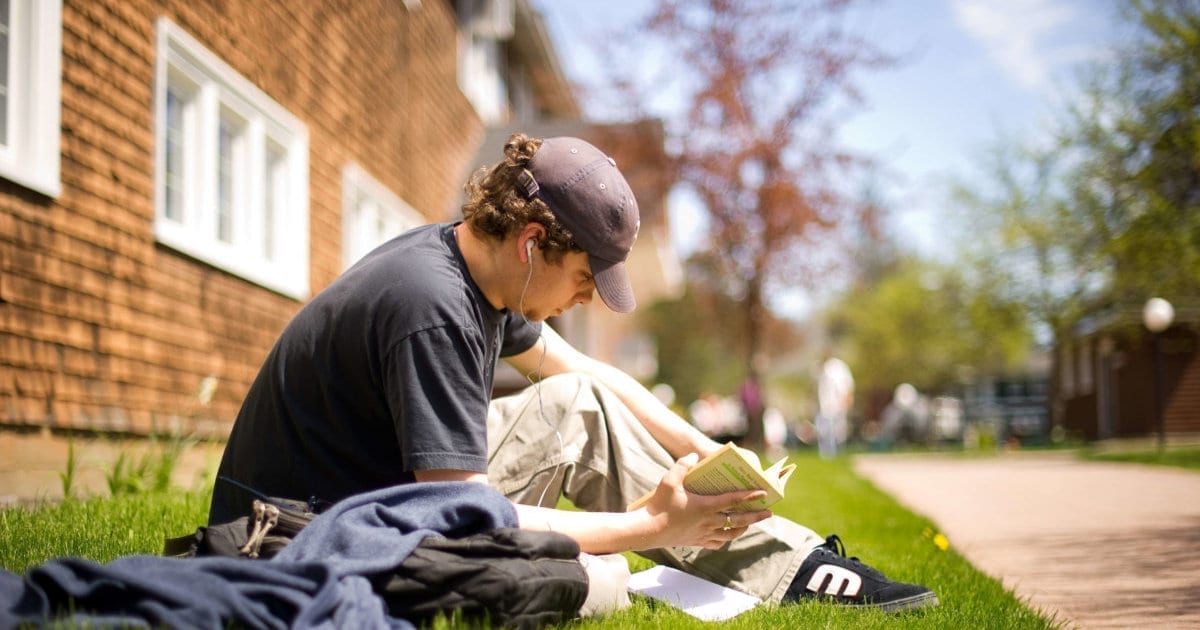Goddard’s Individualized Bachelor of Arts is for creative, motivated students who wish to design a personalized program of learning based in the liberal arts.
In keeping with our learner-centered approach, students work collaboratively with faculty to identify the areas of study they will explore. And, since personal awareness and knowledge of the world go hand in hand, we help students at all levels undertake a holistic, multidisciplinary approach in their studies.
The Individualized Bachelor of Arts emphasizes personal and social transformation. We encourage students to pursue areas of interest that enrich life and contribute to the global community and the Earth.
Request more information from an Admissions Counselor.
The Faculty
The Undergraduate Studies Faculty is deeply committed to enacting the College’s mission and educational values in its engagement with students. Faculty members work one-on-one with students as faculty advisors throughout the semester, as well as facilitating group studies, teaching workshops at residency, and acting as second readers to students’ final projects. Our faculty is comprised of national and international scholar practitioners with extensive experience supporting students taking charge of their learning. Faculty members’ work with students is focused, clear, and rigorous.
Admissions Information
The Bachelor of Arts in Individualized Studies is an undergraduate degree open to any interested, self-directed, and motivated college-ready students.
New students seeking admission may be admitted at any level up to and including the second semester of the junior year. No more than 75 transferable semester hour transfer credits can be applied to the 120 semester hour credits required for the degree.
A minimum of three semesters of enrollment in the degree track is required for graduation.
See complete application instructions.
Location
Twice a year, at the start of each semester, students attend an intensive eight-day residency at the College’s Plainfield, Vermont campus. Residencies are a rich time of exploration, connection, and planning.
Low-Residency Model
At the start of the semester, students attend an intensive eight-day residency in Vermont, followed by 16 weeks of independent work and self-reflection in close collaboration with a faculty advisor. Goddard pioneered this format nearly a half century ago to meet the needs of adult students with professional, family, and other obligations seeking learning experiences grounded in the real-world.
Residencies are a time to explore, network, learn, witness, and share with peers, staff, and faculty. Students work with advisors and peers in close-knit advising groups to forge individualized study plans that describe their learning objectives for the semester.
Working closely with their faculty advisors, and supported by fellow learners, students identify areas of study, personal goals, relevant resources, and avenues to achieve these goals. Students also attend and are invited to help organize workshops, keynote addresses, celebrations and other events intended to stimulate, inspire, and challenge.
This low-residency model combines the breadth of a collaborative community with the focus of personalized learning, enhanced by insightful exchanges with a faculty advisor.
Work of the Semester
During the semester, students send faculty advisors “packets” of work that vary in content but typically contain diverse forms of learning, including study journals, annotations, research papers, creative writing, samples of artwork, autobiographical and process reflections, and audio/video production.
A detailed response from the advisor is both supportive and challenging, engaging in the learning the student presents and suggesting resources and strategies for the next packet. The advisor also addresses the packet in the context of the student’s semester goals and their progress toward fulfilling degree requirements. Over the semester, the exchanges between student and advisor create a dialogue that is exceptionally in-depth and meaningful. Students often describe these exchanges as transformative and empowering. At the end of the semester, students and advisors write comprehensive evaluations of the student’s learning.
